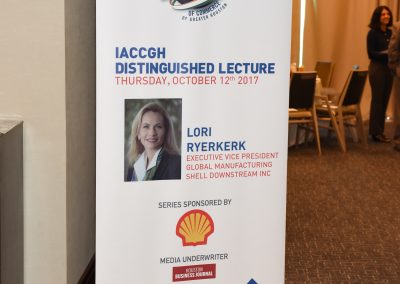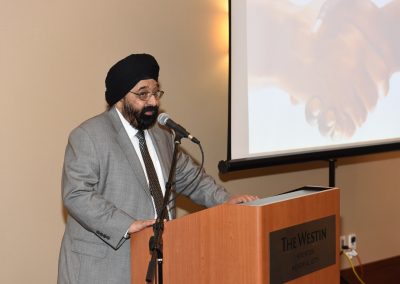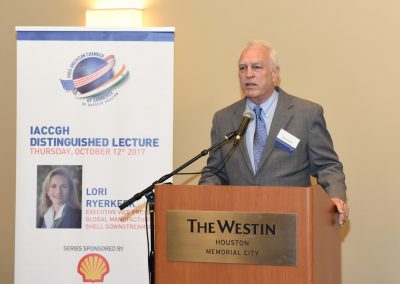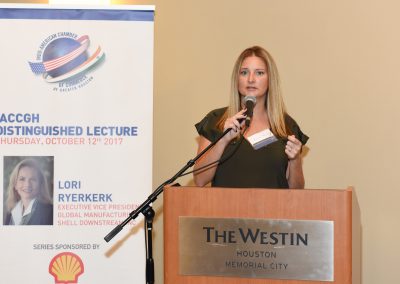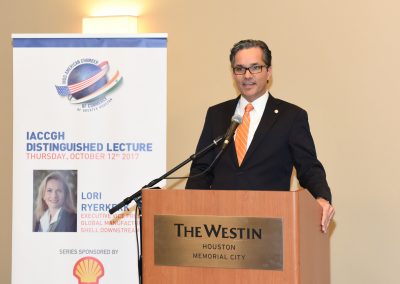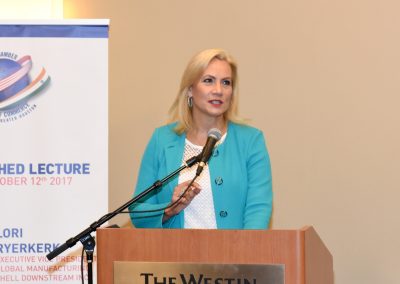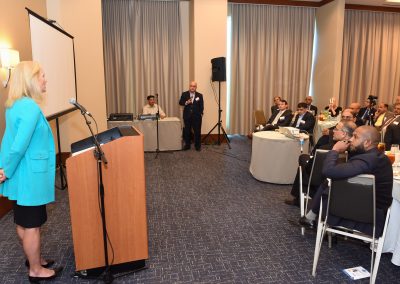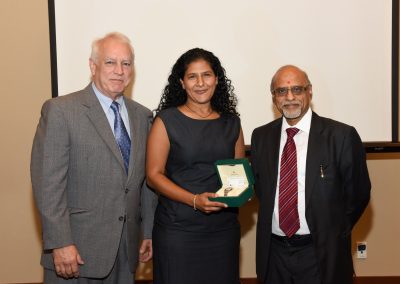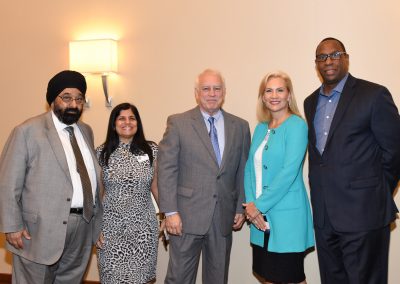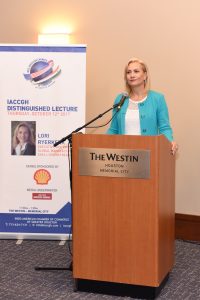
By Phenil Shah
Ms. Lori J. Ryerkerk, who was the guest speaker at the IACCGH luncheon held at Westin on October 12,2017 serves as an Executive Vice President, Global Manufacturing for Royal Dutch Shell (Shell). Ms. Ryerkerk is responsible for the operations of all Shell refining and chemical wholly owned and operated assets and joint ventures. The topic of discussion at the luncheon was Global energy change and how the Oil industry contributes towards it and what the industry is doing to make positive, long term and sustainable changes for a better and cleaner future.
According the United Nations the world population is expected to grow by to 10 billion by the year 2050 and we will need to address that growing energy of needs of the growing global population. While these needs are being addressed, we see there is a global energy transition that the world is undergoing. We need to address the increasing energy consumption while still reducing our carbon footprint. Therefore, the overall Energy transition will take a lot of time, effort and collaboration between countries to implement.
It takes longer for under developed or developing nations to address the energy transition as compared to the developing nations. The challenges faced by these countries are much different because their infrastructure is different. For some underdeveloped and developing nation, the priority is to get access to clean energy or even just access to energy for every citizen. Some countries are still struggling to have access to clean water, so their priorities are much different than that of countries such as US, UK or countries in the European Union. For example: the energy solutions that work in a wealthy city like Copenhagen, Denmark will not work in Lagos, Nigeria. A second example is that of electric cars that may work in countries like the US or UK but will definitely not work in Asian or African cities, simply because there is a shortage of electricity or access to it is limited in these countries.
The use of hydrocarbons is still inevitable in some major sectors such as Aviation, military, passenger vehicles, marine shipping, heavy weight machinery, heavy industries such as steel and cement etc. Petrochemical industry has grown at a rate of 3.7 % per year over the last 15 years. So different countries and different sectors means different timeline for energy transition to happen globally. The different economical, technological or political challenges also mean different solutions. There is not going to be a single simple solution to grasping the complex Energy transition challenge worldwide. This challenge will require “ALL” solutions to be developed to meet our growing populations needs, demands and desires for more and cleaner energy. Ms. Ryerkerk ended her note with the phrase: “The world is changing, but global change takes time”.
10_DistinguishedLecture_ProgramBook

